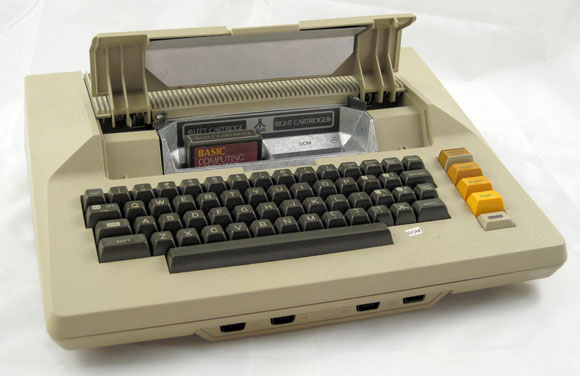My blogging/online history
I started blogging late, in 2009. I was stuck in a bad job, that had gotten much worse due to some serious political wrangling by the executive suite.
At first I just grabbed a wordpress.com site, and made a couple of posts that were really not meant to be read by anybody. Venting about the stupid crap that I saw every day.
Very quickly, I wanted more. I had been spending time reading some of the major blogs about product managment at the time and wanted to get my own voice out there.
A friend of mine, a photographer, was interested in improving her online presence, so I dove into hosting.
the wordpress days
I had my own domain that I bought back in 1998, and used for my main email. So I used that domain and found a web host.
My first blog was based on WordPress, and it was easy to setup. I bought a commercial theme, did some simple customization, and I was up. I focused on product management, and a few personal items.
WordPress served me well, but the ubiquity of the platform, and the spectrum of add ons was fun. I hooked my twitter handle to it, and a lot of other cool things.
But, that era, WordPress was a common target of hackers. The first time I got hacked, my host helped me clean up. The second time, I got whacked really good. I had to wipe and start from scratch.
When a few months later I got hit a third time, it was time for a change.
enter Joomla!
I had been playing with some of the more industrial strength CMS’s, starting with Drupal. While it was easy to setup, and very well appointed with features, it was a bit beyond what a novice needed. It does power the Economist, so it is a professional strength solution.
At the start of 2012, I got involved with a local non-profit. A group that rescues retired Greyhounds, they were just getting started, and I got drafted to build their web presence.
One of the other “communications” people, who would be helping with content creation and maintenance had experience with Joomla! so we decided to go that route. (Unfortunately, she quickly vanished, and I do virtually all the maintenance and content creation) The other option was WordPress, but by then, with the exploits I had to deal with, it wasn’t worth entertaining.
A crash course in Joomla, creation of a custom theme, and the site went live in June (there was a quick and dirty WordPress site that just tided us over.)
Joomla was a good intermediary between WordPress which while very flexible, is at its core a blog environment, and Drupal, a heavyweigh. A lot of moving parts, but there was a method to the madness. And, importantly, it had a pretty solid ecosystem of add ons, with mostly professional coders who would support, and take care on security. I was able to get the site up and running, build a front end access system that allowed the adoption people to maintain the “available” dogs list without needing to do any HTML coding.
When I became comfortable with Joomla, I moved my wordpress site, tralfaz, home of product management to the Joomla platform. It wasn’t a seamless transition, but there were tools available to smoothe the transition.
Joomla has a good balance between extensibility, flexibility, and performance.
Hosting goes to hell
One of the hazards of running your own website, especially if you don’t have a machine in a rack in some data center, is the hosting company you select can turn out to suck.
I didn’t know who was good or bad at the time in late 2009, but I figured out that the rating sites were pretty rigged. The highly rated hosts surprisngly had lots of people trash talking them.
I selected Media Temple. They seemed to be very professional, and had a really solid platform. I gave it a try, but quickly converted my trial into a paying service. They were expensive, but they had awesome performance, great flexibility, and support was fast and responsive. A win, win situation.
When I was setting up the non-profit’s website, they had registered their domains with GoDaddy. I decided to go with GoDaddy’s linux based shared hosting. At $6 a month, it was less than 1/3 the cost of Media Temple. It was far more restrictive, and “idiot proof” than Media Temple. But it worked, and it was easy to setup the site.
However, GoDaddy is a slimy company. They use every point of contact to try to sell you more useless stuff. More emails, more domains, etc. Every time I log into them I am barraged with their marketing. As a marketer, I understand the desire to use your opportunities to place product and ads.
But I deal with it for this organization. The things I do for the hounds…
In September 2013, I got the cheery email from Media Temple announcing that they were purchased by GoDaddy. Ugh. Regardless of the professions of it being a good thing, and that GoDaddy wouldn’t interfere, I knew that I needed to move my web properties.
VPS, more control, and scary too
A while before that I had contemplating going to the next level in hosting. Instead of being on a shared linux box with other users, who at times would consume all of the resources, I wanted to go to a VPS. Not quite dedicated hardware, but my own instance of linux, and a guaranteed IO and bandwidth. This was the nudge that put me over the edge.
I did a bit of searching before I focused in on a new provider. A Small Orange had good reviews, and their site and product offerings were pretty solid I took the plunge, and signed up for a 2 core system with 1.5G ram, and 40 gigs of SSD storage. Getting it setup was trivial, and within 30 minutes I was up and running.
The truth is I am a bit of a novice in linux. I have used it at various times in the past, but never connected to the world. But the standard configuration of the system offered by A Small Orange was solid and well configured.
It took a while to move all my properties from Media Temple to A Small Orange, and ensure that they were properly setup, but it went smoothly.
Coda
I started as a complete babe in the woods. I knew enough unix CLI to be dangerous, but the awesome support of Media Temple kept me out of trouble.
I started heavily reliant on the WYSIWYG editors built into WordPress, then Joomla. They worked well, but after editing and re-editing posts, things got pretty hosed. Particulary with the greyhound site, where I was constantly updating the main page.
Add to that the fact that I would often get articles to post in Microsoft Word format, it was a real chore to import that text, and strip out the stupid shit Microsoft embeds into their files.
So, I started using a text editor and hand coding a lot of HTML to get things the way I like. This worked well, but it was a chore, particularly for things with lots of formatting.
Then I discovered markdown. I was unsure of the use of it at first, so while i learnt the basics, I never did anything with it. Then I figured out how to convert to plain HTML, and it has become a godsend.
Now I do most of my work in markdown, and it is a snap to format, and make the text look just how I want it.
There are a couple of good markdown editors on the Mac (I am currently using Mou) and an industrial strength one on the PC (markdownpad).
Summary
I am currently hosting my sites, my wife’s business site words by barbara, my friend’s photography site, and a few others.
I still have the original wordpress.com site gander2112 where you are reading this now. My old posterous postings moved over, and this is my personal, for friends and acquaintences blog.
I have learned a lot in the past 4 years, and I am sure I will learn much more.

